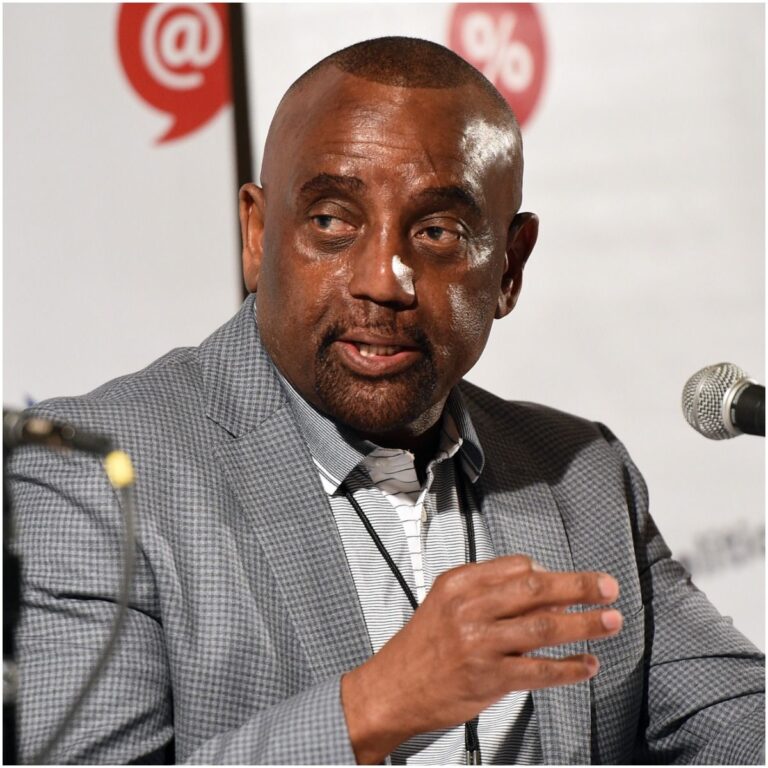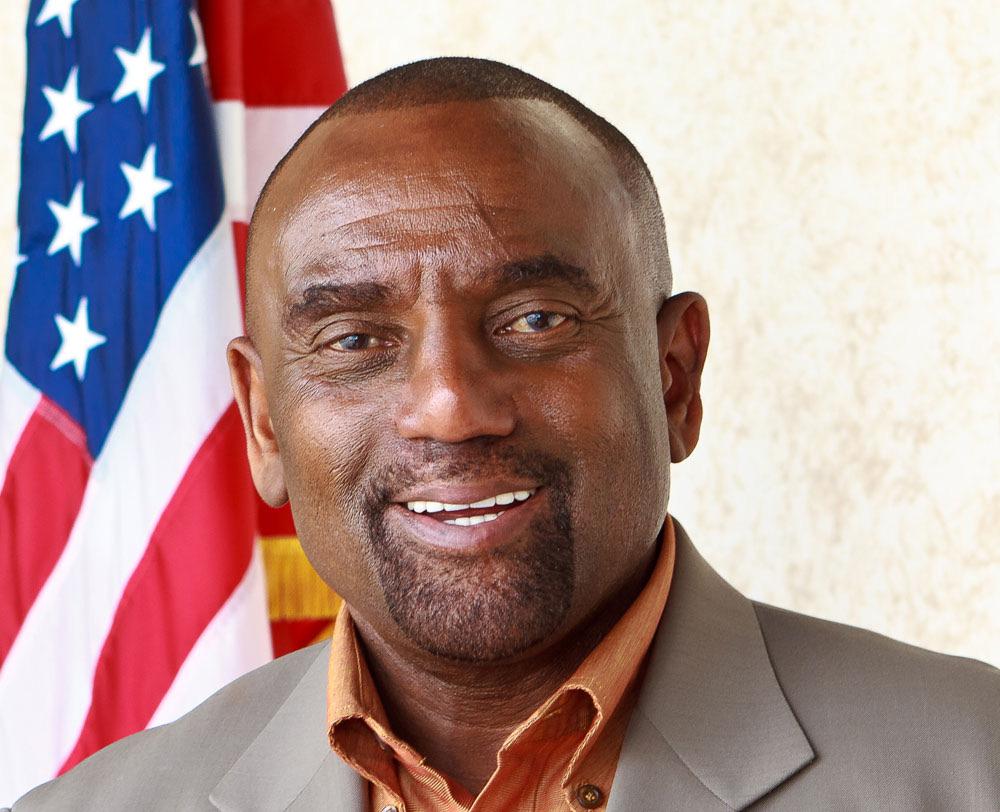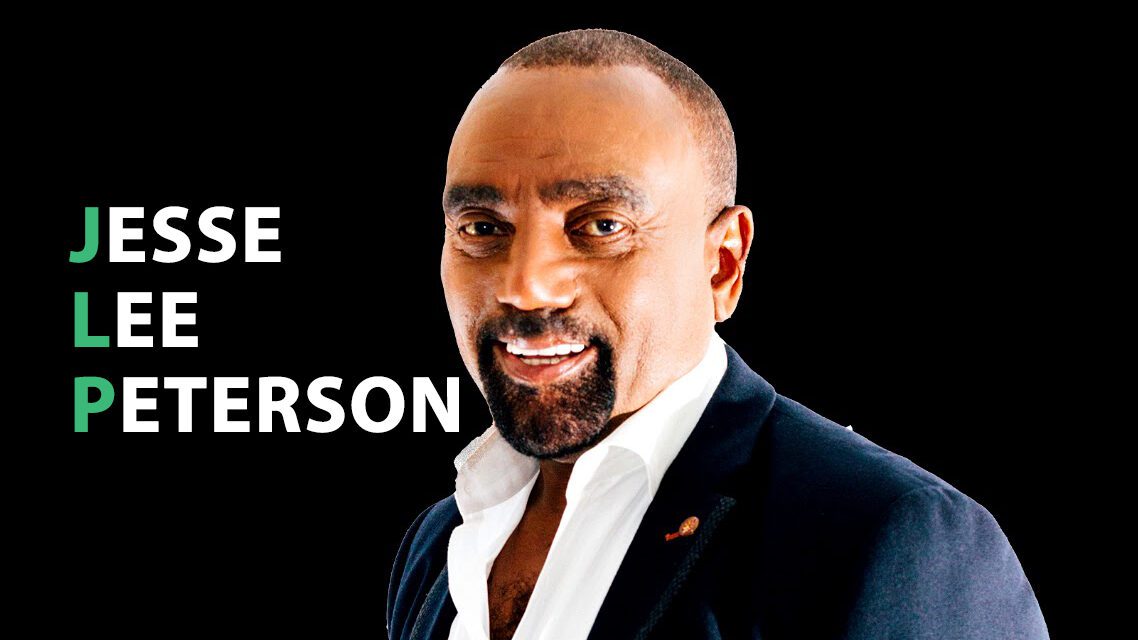Unpacking Jesse Lee Peterson: The Controversial Figure
In the vast and often tumultuous landscape of online commentary and public discourse, few figures elicit as strong and polarized reactions as Jesse Lee Peterson. Known for his unapologetic, often confrontational style and deeply conservative viewpoints, Peterson has carved out a unique niche as a pastor, author, and media personality. His presence is undeniable, frequently sparking debate and drawing both fervent supporters and staunch critics across various platforms.
This article delves into the world of Jesse Lee Peterson, exploring his background, his distinctive public persona, the controversies that frequently surround him, and the impact he has made on contemporary social and political conversations. We will also address a common point of confusion, distinguishing him from other notable figures sharing the name "Jesse," particularly the significant biblical patriarch.
Table of Contents
- Who is Jesse Lee Peterson? A Brief Biography
- The Art of Provocation: Jesse Lee Peterson's Public Persona
- Unraveling Controversies and Allegations Surrounding Jesse Lee Peterson
- Jesse Lee Peterson's Influence in the Digital Age
- Beyond the Headlines: Analyzing Jesse Lee Peterson's Core Messages
- Distinguishing Fact from Fiction: Jesse Lee Peterson vs. Biblical Jesse
- The Impact and Reception of Jesse Lee Peterson's Views
- Navigating Controversial Voices in the Media
- Conclusion
Who is Jesse Lee Peterson? A Brief Biography
Jesse Lee Peterson is an American conservative commentator, author, and pastor. He is the founder and president of BOND (Brotherhood Organization of a New Destiny), a non-profit organization established in 1990 with the stated mission of rebuilding the family by rebuilding the man. Peterson gained significant public attention through his appearances on various talk shows, his own YouTube channel, and his radio show, "The Jesse Lee Peterson Show."
Born in Alabama and raised in the South, Peterson's early life experiences, including growing up without a father figure, heavily influenced his later views on family, gender roles, and personal responsibility. He often speaks about the importance of strong male leadership and traditional values, which form the bedrock of his public commentary. His journey from a humble background to a prominent, albeit controversial, media personality is a testament to his persistent and unwavering articulation of his beliefs.
Personal Data and Background
While specific detailed personal data beyond his public persona is often kept private, here is a summary of generally known information:
| Attribute | Detail |
|---|---|
| Full Name | Jesse Lee Peterson |
| Occupation | Pastor, Author, Radio Host, Commentator |
| Organization | Founder and President of BOND (Brotherhood Organization of a New Destiny) |
| Known For | Conservative commentary, controversial statements, "super troll" persona |
| Key Themes | Traditional values, male leadership, personal responsibility, criticism of modern society |
| Public Presence | YouTube channel, "The Jesse Lee Peterson Show" (radio), various media appearances |
The Art of Provocation: Jesse Lee Peterson's Public Persona
One of the defining characteristics of Jesse Lee Peterson is his deliberate embrace of a provocative and often confrontational public persona. He has been widely described as a "super troll," a label he seems to wear with a certain degree of pride. This isn't accidental; it's a calculated strategy to draw attention, challenge conventional wisdom, and force uncomfortable conversations. He knows exactly what he's doing and saying, often pushing boundaries in ways that few other public figures dare.
A prime example of this "top-tier troll" approach is the widely circulated incident where a "gay pastor walks off interview when Jesse Lee Peterson said this." Such moments encapsulate his method: he delivers statements that are designed to elicit strong reactions, often rooted in his deeply held, and frequently unpopular, beliefs about gender, sexuality, and societal norms. These interactions, whether on his own platforms or during interviews, become viral moments that amplify his message, regardless of whether the reaction is positive or negative. His ability to maintain composure while others react emotionally is a key part of his controversial appeal. This strategic use of provocation ensures that Jesse Lee Peterson remains a constant topic of discussion, keeping his views in the public eye.
Unraveling Controversies and Allegations Surrounding Jesse Lee Peterson
Jesse Lee Peterson's career is inextricably linked with controversy. Beyond his general confrontational style, specific allegations and criticisms have frequently emerged, adding layers to his already complex public image. One of the most striking and ironic claims that has gained traction is the assertion that the "woman hating anti homosexual uncle tom Jesse Lee Peterson is a homosexual" himself. This allegation is not merely speculative; reports indicate that "many gay men have come forward and made claims they have had s3xual relations" with him. These claims, if true, would represent a profound contradiction to his public stance, particularly his outspoken criticism of homosexuality and his promotion of traditional gender roles.
His views on women are also a significant source of contention. Peterson frequently advises men to "never prioritize a woman over yourself," a sentiment that, while perhaps intended to promote self-respect and personal strength, is often interpreted as misogynistic and dismissive of healthy relationships. He has made numerous statements that suggest women are inherently problematic or that their influence is detrimental to men and society. These views, combined with the allegations regarding his own sexuality, create a highly charged and often confusing narrative around his personal life and public teachings. The tension between his stated beliefs and the claims made against him fuels much of the debate surrounding Jesse Lee Peterson, making him a figure of intense scrutiny and discussion.
Jesse Lee Peterson's Influence in the Digital Age
In an era dominated by digital media, Jesse Lee Peterson has masterfully leveraged platforms like YouTube, social media, and podcasts to amplify his voice and cultivate a dedicated following. His content, characterized by direct addresses, interviews, and call-in segments, resonates with a segment of the population that feels unheard or alienated by mainstream discourse. The informal nature of these platforms allows him to connect directly with his audience, bypassing traditional media gatekeepers.
Evidence of his online influence can be seen in various corners of the internet. Forum discussions and comment sections frequently feature references to him, with users often adopting his catchphrases or even using "Jesse Lee Peterson avy" (avatar) as a badge of allegiance. Comments like "+2 kahlua x159 op 51 k 9 months ago '23" and "Qdobacasanova said op has a." (referring to his avatar) illustrate the active and engaged community that has formed around his content. This digital ecosystem allows his controversial statements to spread rapidly, creating viral moments that further expand his reach. His ability to generate engagement, whether through agreement or outrage, is a testament to his understanding of online dynamics and his strategic use of digital platforms to disseminate his unique brand of commentary.
Beyond the Headlines: Analyzing Jesse Lee Peterson's Core Messages
While much of the public's attention on Jesse Lee Peterson focuses on his controversial statements and "troll" persona, it's important to look beyond the sensationalism to understand the core messages he attempts to convey. At the heart of his philosophy lies a strong emphasis on personal responsibility, self-reliance, and a return to what he perceives as traditional moral and social structures. He frequently criticizes what he views as the feminization of society, the breakdown of the family unit, and the erosion of traditional male roles.
Peterson advocates for men to be strong, decisive, and independent, often urging them to overcome emotional weakness and external influences. His advice to "never prioritize a woman over yourself" is a recurring theme, which he frames as a necessary step for men to regain their strength and purpose. He often speaks about the importance of forgiveness, particularly towards parents, as a path to inner peace and overcoming past traumas. Despite the often harsh delivery, his supporters see his message as a refreshing, albeit blunt, call for accountability and a rejection of what they perceive as societal victimhood. He positions himself as a truth-teller, unafraid to speak uncomfortable truths in a world he believes has become too sensitive and politically correct. This unwavering stance, regardless of its controversial nature, is a significant part of his appeal to his dedicated audience.
Distinguishing Fact from Fiction: Jesse Lee Peterson vs. Biblical Jesse
A common point of confusion, particularly for those new to the public figure, is the distinction between Jesse Lee Peterson and other notable figures named Jesse. Given the prominence of the name in various contexts, it's crucial to clarify that Jesse Lee Peterson is a contemporary American commentator, entirely separate from historical or fictional characters bearing the same first name. The most significant source of this confusion often stems from the biblical figure of Jesse.
The Biblical Jesse: Father of King David
In the Hebrew Bible (Old Testament), Jesse is a significant figure, primarily known as the father of King David, one of Israel's greatest kings. His lineage is crucial in biblical history, as it establishes the genealogical line that ultimately leads to Christ, who is often referred to as the "Son of David" (Matthew 22:42) and the "Root of Jesse."
Jesse was the son of Obed and the grandson of Boaz and Ruth, a lineage that connects him to important stories of faith and redemption. He was a farmer and sheep breeder in Bethlehem, an ordinary guy with eight sons and two daughters (if you call having ten kids ordinary!). We don’t know much about Jesse as a person from the biblical texts; there is no indication from the Bible that Jesse served in any influential or prominent public role. However, as King David's father, Jesse plays a critical role in the Bible's story, serving as the progenitor of a royal and messianic line. The term "Root of Jesse" figuratively stands for the Messiah, signifying the origin and foundation of this divine lineage. His story, though brief, underscores the idea that God often chooses ordinary individuals for extraordinary purposes, and that seemingly insignificant lives can have profound historical and spiritual implications.
Other Notable Figures Named Jesse
Beyond the biblical patriarch, the name "Jesse" appears in various other cultural contexts, further contributing to potential confusion. These include:
- Jesse (sitcom): A 1998 American sitcom starring Christina Applegate.
- Jesse (novel): A 1994 novel by Gary Soto.
- Jesse (picture book): A 1988 children's book by Tim Winton.
- Jesse (video game protagonist): The main protagonist of the video game "Minecraft: Story Mode."
It is important for readers to understand that none of these figures are connected to Jesse Lee Peterson. He is a distinct individual with his own unique history and public presence, separate from these historical, literary, or fictional characters.
The Impact and Reception of Jesse Lee Peterson's Views
The impact of Jesse Lee Peterson on public discourse is undeniable, largely due to the highly polarized reception of his views. For his supporters, he represents a refreshing voice of common sense and traditional values in a world they perceive as increasingly detached from reality. They appreciate his bluntness, his rejection of political correctness, and his unwavering stance on issues he deems fundamental to society's well-being. His message of personal responsibility and male empowerment resonates deeply with those who feel that these concepts are being undermined or ignored by mainstream media and institutions.
Conversely, his detractors view him as a purveyor of hate speech, misogyny, homophobia, and harmful stereotypes. They criticize his confrontational style, his often inflammatory rhetoric, and the perceived hypocrisy surrounding his personal life allegations. Critics argue that his views contribute to societal division and perpetuate harmful narratives about gender, race, and sexuality. The strong reactions he elicits, whether positive or negative, ensure that Jesse Lee Peterson remains a significant, albeit controversial, figure in the ongoing cultural wars, influencing discussions across various social and political spectrums.
Navigating Controversial Voices in the Media
In today's media landscape, encountering controversial figures like Jesse Lee Peterson is increasingly common. Their ability to bypass traditional media filters and connect directly with audiences means that critical engagement with their content is more important than ever. Understanding how to approach such figures and their messages is key to informed participation in public discourse.
Critical Engagement with Media Figures
When encountering figures like Jesse Lee Peterson, it's vital to engage critically rather than simply accepting or rejecting their narratives outright. This involves:
- Identifying the Core Message: Beyond the provocative delivery, what is the underlying argument or philosophy being presented?
- Considering the Source: What is the background and stated mission of the individual or organization?
- Analyzing Rhetoric: How are arguments constructed? Are they based on logic, emotion, or personal anecdote?
- Recognizing Bias: Everyone has biases; understanding a commentator's inherent leanings helps in evaluating their message.
The Importance of Context and Verification
Context is crucial when interpreting controversial statements. A soundbite taken out of its broader discussion can often be misleading. Furthermore, in an age of misinformation, verifying claims and allegations is paramount. This means:
- Seeking Multiple Perspectives: Don't rely on a single source for information or opinion.
- Fact-Checking: Independently verify any factual claims made.
- Understanding Nuance: Recognize that complex issues rarely have simple, black-and-white answers.
Conclusion
Jesse Lee Peterson stands as a quintessential figure of modern online discourse: polarizing, provocative, and undeniably influential. From his "super troll" persona and controversial statements about gender and relationships to the serious allegations surrounding his personal life, he consistently generates headlines and sparks heated debate. His ability to cultivate a devoted online following, despite or perhaps because of his confrontational style, underscores the appetite for unfiltered and often extreme viewpoints in the digital age.
As we've explored, it's crucial to differentiate the contemporary Jesse Lee Peterson from the revered biblical figure of Jesse, father of King David, and other cultural references. This distinction highlights the importance of accuracy and context when engaging with public figures. Ultimately, Jesse Lee Peterson serves as a powerful reminder of the diverse and often contentious nature of public opinion. Whether one agrees with his message or vehemently opposes it, his presence necessitates critical thinking and a careful examination of the ideas he champions. We encourage you to share your thoughts on Jesse Lee Peterson in the comments below or explore other related articles on our site to deepen your understanding of contemporary media figures.

Jesse Lee Peterson Net Worth (Update) - Famous People Today

Jesse Lee Peterson: Family, Spouse, Children, Dating, Net Worth

Jesse Lee Peterson: Pastor, Counselor, Radio & TV Talk Show Host